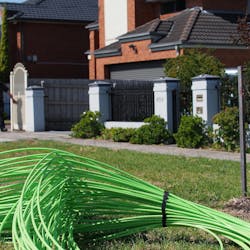The cable industry has a powerful emerging partner in the drive to build their on-net content delivery networks (CDNs): The companies that invented the commercial CDN industry and dominate it.At this point, however, the two industry segments have not worked out many of the details on how this cooperation will take place. It's complex on the technical and, especially, on the business level. "Most of the cable companies I've seen still are kicking the tires," said Stephen Condon, the vice president of marketing communications for Limelight Networks (NASDAQ:LLNW).But many people who kick the tires end up buying the car, and cable operators may end up driving off the lot with a CDN from one of the big players. Cable operators are interested in replicating large CDNs as IP content proliferates and increasing competition makes quality of experience (QoE) - keeping subscribers happy - paramount.Companies such as Limelight, Akamai and Level 3 offer "off-net" CDNs, which are sort of the long distance carriers of the CDN world. They can also provide the expertise and technology to help create robust on-net CDNs for cable operators.They all say that they are talking to cable operators. The services that they offer can cover a number of business and technical questions. One of the first is how deals are structured. The CDN providers can provide them under an increasingly popular scenario in which the vendor builds and operates the CDN, trains the customer to operate it, and gradually relinquishes control as the customer gets up to speed.Another question is precisely what the CDN will be optimized for. Will it be new services? More efficient delivery of current services? The CDN can be engineered to help to support the MSOs' video-on-demand services. Finally, the melding of off- and on-net CDNs pushes the industry a step closer to the goal of federation, in which the CDNs from two or more MSOs are linked. This is possible - but tricky.MSOs may get good deals from the CDN players because the video market is expanding and what cable companies do is pretty simple. It deals with a specific subset of their business and can be handled easily. In other words, CDN services to telcos - who generally have more sophisticated commercial customers - can be demanding. Cable operators may represent low-hanging fruit to these firms. "CDNs for cable operators and [broader] commercial uses is very different," said Mark Taylor, the vice president of media and IP services for Level 3 (NYSE:LVLT). "[What cable is doing] is very simple and straight-forward."MSOs may get the typical advantages of managed services: Know-how and savings. Using an Akamai, Limelight, Level 3 or other CDN provider for on-net services all but guarantees that the MSO will be current on encryption standards, adaptive bitrate streaming protocols and other issues vital to the smooth operation of an IP network. The managed approach also cuts the upfront investments that operators would have to make if they were building it themselves. Finally, a relationship between an off-net and on-net CDN makes the delivery of content to a traveling subscriber easier.Operators may consider CDNs the next generation of VOD. Frank Childs, the director of product marketing for Akamai's (NASDAQ:AKAM) Aura division, said the cable industry doesn't want to repeat the inefficiencies of the pioneering days of VOD. At that time, he said, VOD generated solid revenue, but profits suffered because of the inefficiency of VOD deployment.Working with CDN providers, Childs said, can optimize the overall profitability of the systems that are put in place. "They don't want to repeat that type of investment," said Childs. "It was a huge expense to invent and deploy the infrastructure, and they are looking to get into this next generation with a little lighter touch."On the technical level, coordination between the off-net and on-net caching infrastructure is important. In some cases, one company - Akamai, Limelight or Level 3 - will play both the on- and off-net roles. In other cases, the off-net CDN must communicate with an on-net cousin from a company such as Velocix. Level 3's Mark Taylor said that the company's "delegated edge" technology is designed to create a deep technical link between the its off-net CDN and existing on-net infrastructure.The cable industry still is feeling its way on CDNs. The good news is that the industry has been through enough broad infrastructure deployments to get a good sense of the potential pitfalls and great potential CDNs hold. It won't happen overnight, but when it does, it will shape a vital part of the industry's infrastructure for decades to come.There are two parallel evolutions to watch in the cable industry's use of CDNs: The development of on-net CDNs and the relationship of MSOs and the big off-net providers. The cable companies are making strides in their acceptance of the approach. "If you asked me 12 or 18 months ago ... my feelings were that they were fairly resistant and defensive about the potential," Childs said. "In the last year, we've seen a huge movement. They understand they need to figure it out."Carl Weinschenk is the Senior Editor of Broadband Technology Report. Reach him at [email protected].






